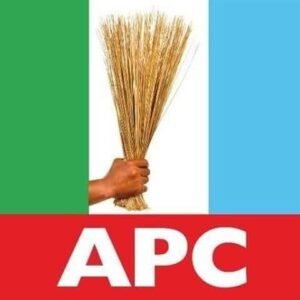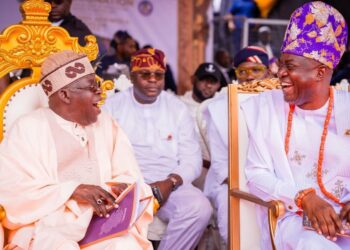
By Ibrahim Kegbegbe
In a move that has sparked widespread debate and drawn criticism from civil society groups and political observers, the Lagos State chapter of the All Progressives Congress (APC) has announced what many describe as “exorbitant” nomination fees for aspirants vying for positions in the upcoming local government elections.
The party pegged the nomination fee for chairmanship aspirants at N5 million, while those seeking councillorship positions are required to pay N1 million. In addition, an administrative charge of N500,000 is mandatory for all candidates—regardless of category.
While the APC stated that women and youth candidates would receive a 50% rebate—bringing their fees to N2.5 million for chairmanship and N500,000 for councillorship—the timing and structure of the fees have raised serious concerns about inclusivity, affordability, and the underlying motive of the party leadership.
At a time when the majority of Nigerians are grappling with harsh economic realities—rising inflation, house rent hikes, and record unemployment—the announcement has triggered questions about whether the high fees are meant to generate revenue for the party or deliberately discourage grassroots participation.
“This is nothing short of economic disenfranchisement,” said political analyst Tunde Aromire. “How does a young, competent candidate afford such a fee, especially in a country where even graduates struggle to earn N50,000 monthly?”
Some critics argue that the fee structure favors the political elite and entrenched interests while shutting out ordinary citizens, especially those without strong financial backers. Youth activists in Lagos described the move as “undemocratic and exploitative,” urging the APC to reconsider the fees to encourage broader participation.
“This is supposed to be local government—closest to the people—yet the process is priced far beyond the reach of the average Nigerian,” said Remi Coker, a civil society advocate. “It reinforces the perception that politics in Nigeria is reserved for the wealthy.”
APC, however, defended the fee structure as necessary to cover logistical costs and ensure serious aspirants emerge. A party spokesman, who requested anonymity, said: “The fee is not about money-making. It’s about commitment. We want candidates who are serious, not just anyone who wants to test the waters.”
The upcoming polls will cover all 57 Local Government Areas (LGAs) and Local Council Development Areas (LCDAs) in Lagos State, with dozens of aspirants expected to throw their hats into the ring. However, some prospective candidates have already hinted they may withdraw due to the high financial demand.
Political watchers believe that the decision could shape voter sentiment and opposition strategy as grassroots elections often serve as a barometer for future state-level contests.
As the race heats up, The Merit Newspaper will continue to provide extensive coverage—profiling aspirants, monitoring campaign developments, and examining the larger implications of party policies on democratic participation in Nigeria’s most populous state.
















